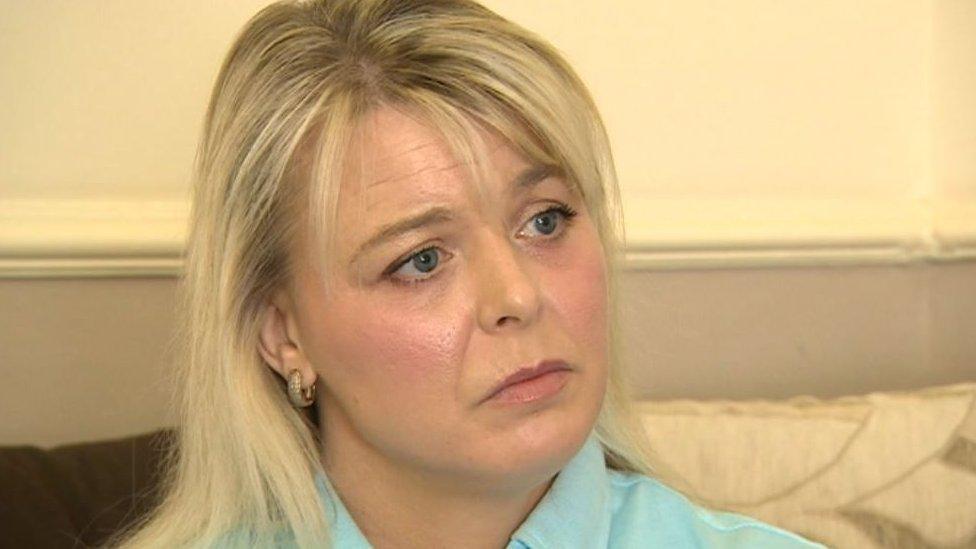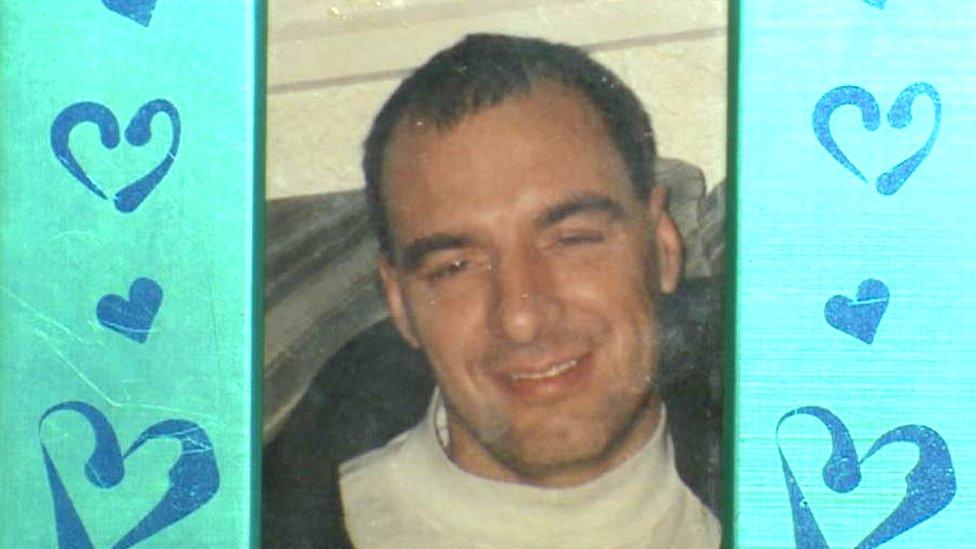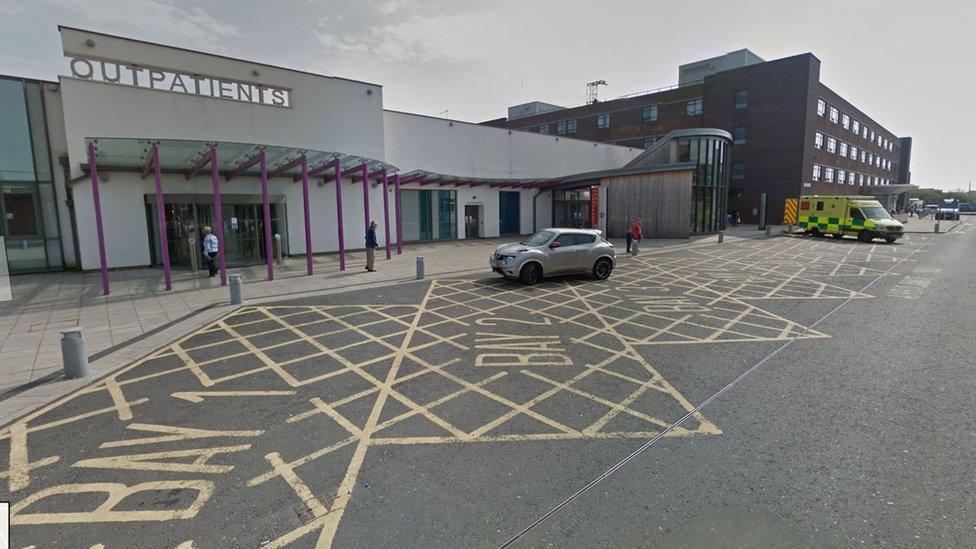Families not told about stored organs and tissue samples
- Published

Sarah Simpson said her family were not told her father's tissue sampled had been stored
Organs and tissue samples from at least 13 dead patients were removed and kept without the knowledge of families.
The samples - taken from post-mortem examinations following unexplained deaths - were found in storage at South Tyneside District Hospital.
Two police forces are now trying to trace relatives after admitting samples were kept "longer than necessary".
The daughter of a Newcastle man, whose samples were among those discovered, has threatened legal action.
The remains were found during an audit at the hospital in South Shields in March 2015.
Cleveland Police said it was dealing with 13 families. Northumbria Police refused to release a figure.

Terence Simpson was killed in a fall in 1995
The Human Tissue Authority (HTA) said that significant improvements had been made to the systems governing the retention of human tissue samples.
A spokesman said police were involved because the deaths were unexplained and could have resulted in court cases.
A Northumbria Police spokeswoman added: "The audit was completed and we were made aware that some human tissue samples had been identified and kept longer than necessary.
"We have been working with Cleveland Police to establish the identity of the samples and to find the relevant next of kin.
"We understand this will be upsetting to those involved and we will offer them as much support as possible.
"In any unexplained death, human tissue samples are retained as part of the investigation for evidential purposes and to determine the cause of death.
"In some cases, this material can be retained for significant periods of time to support the criminal investigation and fulfil legal requirements."

The stored samples were discovered at South Tyneside District Hospital, where the post-mortem examinations were carried out
But Sarah Simpson, whose father Terence died in a fall from a roof 22 years ago, said she was "appalled" to be told his tissue samples had been stored.
She said he had been cremated with the family believing his body was "intact".
Ms Simpson added: "I have put in a complaint to the police and the coroner and I will be taking legal action if I don't get the right answers to what happened."
- Published27 July 2011